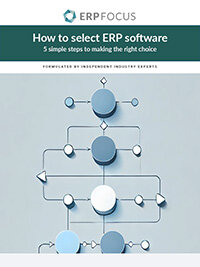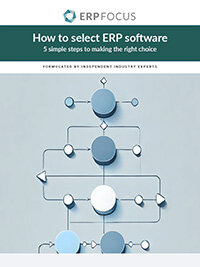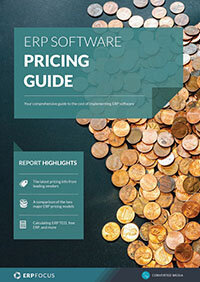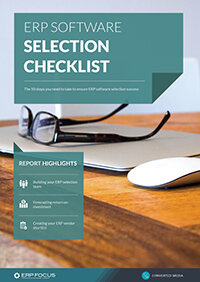Top Tips for Ensuring a Successful ERP Software Demo
ERP software demonstrations are a vital part of the ERP system selection process. Buyers need to know the supplier understands their business and requirements and can showcase the functionality and features of the software based on those needs.
Poorly managed demos cause confusion and leave prospects feeling frustrated and unsure. The key question is whether the software you’re looking at can actually cover your requirements. A successful demonstration is about good communication and an understanding of your company’s specific needs.
It's All about Preparation
Before you start asking suppliers to conduct demos, shortlist a number of potential candidates. ERP vendors are not in short supply, so create a list of basic requirements and pick the top four vendors that best meet those preliminary requirements.
A few key issues to consider:
- Number of users you require
- Your budget you have
- Specific requirements based on your sector/business
Demos take up a lot of time, so make sure you’re not draining resources or causing confusion by having too many suppliers showing off their wares.
Do Your Research
Speak to the sales people at each respective business and do your research: ask clear questions to get the information you need.
It’s also crucial you look for software packages that are designed specifically for your industry. If the software package is designed for educational institutions it probably won’t be suitable for wholesale and distribution companies.
It’s vital that you communicate your requirements to the vendor in as much detail as possible. A great consultant will do everything they can to understand your organisation and requirements to make sure they offer the most suitable solution.
Value Your Time and Theirs
Nothing is worse than wasted time when a vendor showcases their product only to find out it can’t meet the major requirements of your business.
However, patience is also key - give a supplier time to think about your business so they can organise the demonstration effectively. They should have a good idea of your requirements and what they’ll demonstrate - but they’re still likely to need clarification on some of your needs. Come armed with answers.
Give Yourself Enough Time
Schedule a demo well in advance allowing you team adequate time to prepare. Make sure you have all the requirements and questions discussed before the demo and allocate more than enough time to perform the demonstration and ask follow up questions.
The vendor will give you an overview of the software but should also go through your specific requirements in detail. A great vendor will want to show you exactly how their software works to solve your critical challenges and meet the specific requirements of your business.
Voice Your Concerns
During the demo if you have any concerns, make sure you communicate them – and don’t be afraid to ask questions. The best demos tend to be informal with both sides having an honest and open discussion.
Understandably, many teams can get ERP-fatigue after they have seen their third demo –it’s important you have a wash up meeting post-demo to collect your thoughts and gather feedback. You’ll want to come to some form of consensus among your group before you move forward with a decision.
Free white paper

How to Select ERP
Learn to select your ERP in 5 easy steps by following our expert's advice

Featured white papers
-

ERP Software Pricing Guide
Get the latest pricing information on over 80 popular ERP systems, and learn how to budget for your ERP project in our free guide
Download -

60-Step ERP Selection Checklist
Get the comprehensive checklist for your ERP selection project
Download -

ERP Requirements template
Plan your ERP selection using our requirements template with 100 features in an editable spreadsheet. Include special requirements and extra detail in this exclusive template.
Download
Related articles
-

How to evaluate your ERP RFP responses
The dos and don'ts of evaluating ERP RFPs (including RFP evaluation matrix)
-

CMMC Compliance: What Aerospace and Defense Manufacturers Need to Know
Key insights on CMMC compliance, deadlines, and securing DoD contracts with CMMC 2.0 certificatio...
-

The best ERP systems for process manufacturing
Consider these ERP systems when selecting your next process manufacturing ERP

